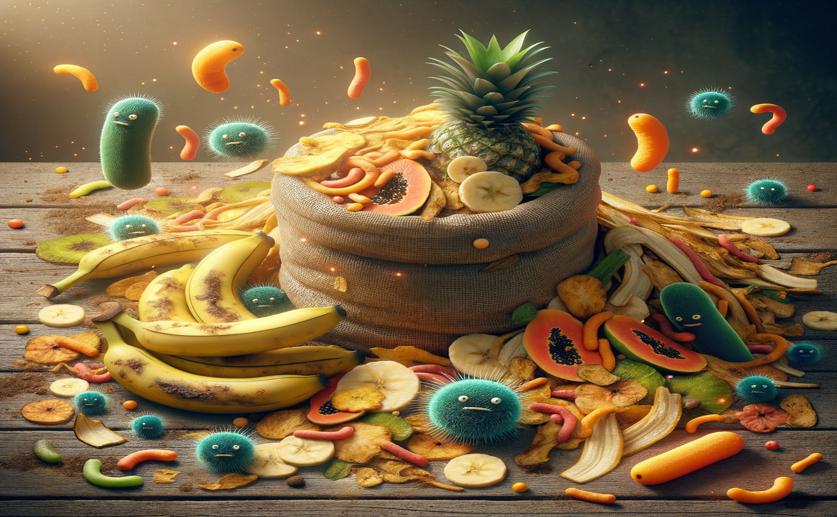
Using Tropical Fruit Waste to Boost Probiotic Health and Functionality
Jim Crocker
23rd July, 2024

Image Source: Natural Science News, 2024
Key Findings
- The study by the Federal University of Paraíba explored using acerola, cashew, and guava fruit coproducts to support probiotic growth
- Probiotics grown in these fruit coproducts had high viable counts and a short lag phase during 24 hours of cultivation
- These fruit coproducts helped probiotics survive freeze-drying and maintain viability during 120 days of refrigerated storage
- Probiotics cultivated in fruit coproducts showed better survival and metabolic activity during simulated gastrointestinal digestion
References
Main Study
1) Exploiting tropical fruit processing coproducts as circular resources to promote the growth and maintain the culturability and functionality of probiotic lactobacilli.
Published 22nd July, 2024
https://doi.org/10.1016/j.fm.2024.104596
Related Studies
2) Protective Effects of Tropical Fruit Processing Coproducts on Probiotic Lactobacillus Strains during Freeze-Drying and Storage.
3) Exploring the relationship between exposure to technological and gastrointestinal stress and probiotic functional properties of lactobacilli and bifidobacteria.
4) The impact of alternative nitrogen sources on the growth and viability of Lactobacillus delbrueckii ssp. bulgaricus.



 20th May, 2024 | Jenn Hoskins
20th May, 2024 | Jenn Hoskins